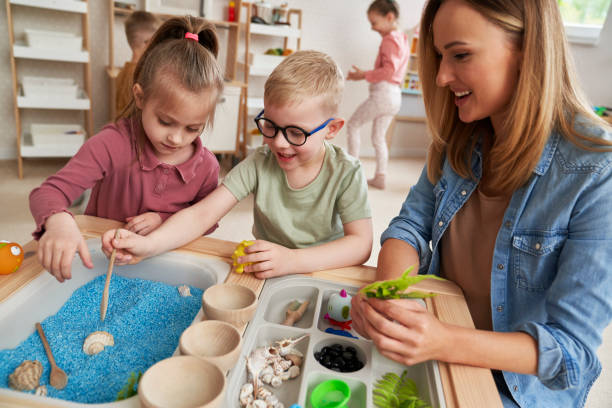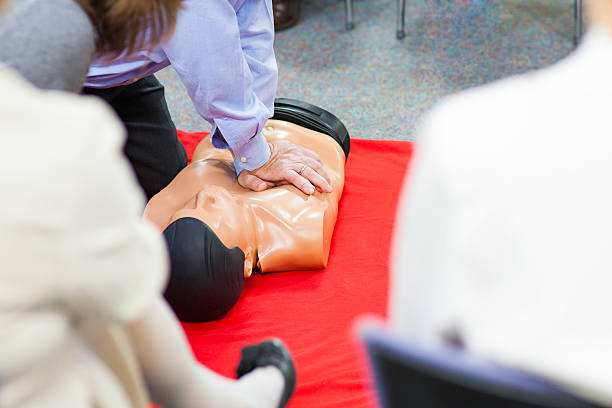Early childhood education plays a vital role in shaping a child’s growth, development, and future learning. It lays the foundation for important skills like communication, social interaction, emotional regulation, and early literacy. At the heart of this formative stage are early childhood educators, who guide and support children through their most critical years.
These professionals work to provide enriching and valuable experiences for children. They plan meaningful learning experiences, create safe and nurturing environments, and build strong relationships with children and families. Their work helps children develop confidence, curiosity, and a love for learning from an early age.
This blog explores what early childhood educators do on a daily basis, their responsibilities, and the lasting impact they have. Whether you’re considering a career in this field or just curious to learn more, you’ll gain insight into how these educators shape brighter futures for young learners.
If you are looking to work as an early childhood educator, explore our upcoming roles and opportunities at METS Training Services. Your future in early learning starts here.
Who Is an Early Childhood Educator?
An early childhood educator is a trained professional who supports the learning, development, and wellbeing of young children during their most formative years. Their role is to nurture a child’s cognitive, emotional, social, and physical development through play based learning, structured activities, and daily routines.
Typically, early childhood educators work with children from birth to five years of age, a period widely recognised as critical for brain development and lifelong learning. During this time, children absorb knowledge quickly and form essential skills that shape their future.
These educators can be found in a variety of settings, including long day care centres, preschools, kindergartens, and family day care homes. Regardless of the environment, their goal remains the same: to create a safe, inclusive, and stimulating space where every child can grow with confidence.
What Does an Early Childhood Educator Do?
1. Creating Safe and Nurturing Environments
Creating a safe and nurturing environment is one of the most important responsibilities of an early childhood educator. This involves more than just supervising children; it requires establishing spaces where children feel physically secure and emotionally supported. Educators implement safety protocols, regularly inspect equipment and materials, and maintain clean, hazard free play and learning areas to protect children from harm.
Equally important is emotional safety. Educators build trust with children through kindness, consistency, and attentive care. They create welcoming, age appropriate spaces filled with learning materials that stimulate curiosity and exploration. These environments are designed to encourage independence while offering the comfort and support young children need to feel confident, express themselves, and build healthy relationships.
2. Planning and Delivering Educational Programs
Early childhood educators play a vital role in planning and delivering educational programs that align with recognised learning frameworks such as the Early Years Learning Framework (EYLF). This framework guides educators in supporting children’s development across key areas including identity, wellbeing, communication, and connection with their world. By using EYLF principles, educators ensure that every child receives a high quality learning experience tailored to their unique needs and stage of development.
These programs are built around play based learning, which encourages children to explore, experiment, and engage in activities that stimulate their creativity and critical thinking. Educators design experiences that nurture literacy, numeracy, problem solving, and social skills in ways that are fun, hands on, and relevant to each child’s interests. Through careful planning and observation, they adapt their approaches to support continuous growth and prepare children for future learning stages.
3. Supporting Social and Emotional Development
Supporting social and emotional development is a core part of an early childhood educator’s role. Educators help children learn how to share, take turns, cooperate with others, and show empathy. Through group play, storytelling, and daily interactions, children are encouraged to recognise emotions in themselves and others, which helps them build healthy relationships.
When conflicts or emotional challenges arise, educators guide children in resolving issues calmly and respectfully. They model appropriate behaviour, teach problem solving strategies, and provide tools to manage frustration or anxiety. This consistent support helps children build emotional resilience, gain confidence, and develop a strong foundation for positive social behaviour as they grow.
4. Monitoring and Documenting Progress
Monitoring and documenting each child’s progress is essential to understanding their unique development. Early childhood educators regularly observe how children interact, learn, and grow across key developmental areas such as language, motor skills, social interaction, and emotional well being. These observations help identify individual strengths and any areas where extra support may be needed.
Educators use this information to create detailed records, including learning portfolios, progress notes, and developmental checklists. These documents are shared with families and, when necessary, other professionals such as speech therapists or child psychologists. Accurate documentation not only supports each child’s learning journey but also ensures that their needs are recognised and addressed in a timely and informed way.
5. Collaborating with Families
Collaborating with families is a vital part of an early childhood educator’s role. Strong communication between educators and parents helps ensure children receive consistent support across both home and educational environments. Educators regularly share updates on milestones, achievements, and any concerns through conversations, reports, or informal check ins. This partnership builds trust and ensures that parents feel included in their child’s development.
Family involvement also enhances a child’s learning experience. When parents participate in activities or contribute to classroom projects, children feel a greater sense of connection and motivation. Educators actively encourage this involvement, recognising that families bring valuable insights, cultural perspectives, and support that enrich the early learning setting.
6. Working with Teams and Other Professionals
Early childhood educators rarely work in isolation. They are part of a broader team that includes fellow educators, assistants, and occasionally external professionals such as speech therapists, occupational therapists, or inclusion support workers. This collaboration ensures that each child’s individual needs are met holistically, especially when additional learning or behavioural support is required.
By working closely with others, educators can share insights, plan more inclusive learning experiences, and address challenges with a team based approach. Effective teamwork creates a more supportive and consistent environment for children, while also helping educators grow professionally through shared knowledge and experience.
Daily Tasks and Routines of Early Childhood Educator
A typical day for an early childhood educator begins with warmly welcoming children and helping them settle into the learning environment. This is often followed by group activities such as story time, singing, or guided discussions that support communication and social skills. The day continues with structured play, creative activities, meals, rest periods, and outdoor exploration, all designed to promote physical, cognitive, and emotional development.
Throughout the day, educators carefully observe each child and adjust routines based on individual needs. Some children may need extra time to transition between activities or more support during play. Flexibility is key, ensuring every child feels safe, engaged, and supported throughout their day.
Skills and Qualities Needed
Early childhood educators need a blend of patience, creativity, empathy, and strong communication and organisational skills. A passion for lifelong learning and a child focused mindset are also essential.
For a deeper look at the key skills required, read our full guide on essential skills for early childhood educators.
The Impact of an Early Childhood Educator
Early childhood educators have a profound and lasting impact on a child’s development. During the first five years of life, children form the foundations of their personality, communication style, emotional regulation, and approach to learning. Educators play a central role in shaping these early experiences through meaningful interactions, structured routines, and play based learning activities. They help children build confidence, independence, and curiosity by creating a safe, nurturing environment where each child feels seen, heard, and valued.
Beyond academic preparation, early childhood educators support the development of vital life skills such as resilience, empathy, cooperation, and self expression. These skills are crucial for navigating school and future social environments. By fostering a child’s emotional wellbeing and a positive sense of identity, educators help children form a strong foundation that supports lifelong learning and success. Their role not only benefits the child but also strengthens families and communities by contributing to better educational and social outcomes over time.
Conclusion
Early childhood educators play a vital and dynamic role in shaping the minds and hearts of our youngest learners. From designing engaging educational programs to nurturing emotional and social growth, their work is both impactful and deeply rewarding. The diversity of their responsibilities reflects the importance of early learning in laying the groundwork for a child’s lifelong success.
Their dedication, patience, and passion make a lasting difference in the lives of children, families, and communities. Educators in this field are more than teachers; they are mentors, caregivers, and role models.Inspired to make a difference in a child’s life? Discover how you can start your career in early childhood education today.







